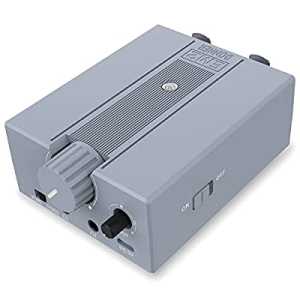
When Should You See A Cardiologist? Key Signs You Shouldn’t Ignore

Your heart is one of the most important organs in your body, and maintaining its health is essential for your overall well-being. However, many people often ignore subtle warning signs that their heart may not be functioning as it should. While some signs might seem harmless, they could be indicative of underlying heart issues that require professional attention. Knowing when to see a cardiologist can make all the difference in preventing serious heart conditions and protecting your long-term health.
In this blog, we’ll discuss the key signs that you shouldn’t ignore and when it’s time to seek expert care from a cardiologist.
1. Chest Pain or Discomfort
Chest pain is one of the most common and well-known signs of a heart issue, but it can also be caused by various other conditions such as acid reflux, anxiety, or muscle strain. However, if you experience sharp, tight, or pressure-like pain in your chest, especially if it radiates to your arm, jaw, or back, it’s a red flag for a potential heart problem, such as angina or even a heart attack.
If the pain lasts more than a few minutes or comes and goes frequently, you should see a cardiologist right away. It’s better to be cautious, especially if the chest pain is accompanied by other symptoms such as sweating, nausea, or shortness of breath.
2. Shortness of Breath
Breathing difficulties, especially when you’re at rest or performing normal activities, could be a sign of a heart problem. When your heart is not pumping effectively, it can lead to fluid buildup in your lungs, making it hard to breathe. This condition, known as heart failure, can cause persistent shortness of breath that worsens over time.
If you find yourself winded after light activity or experience breathlessness while lying down, it's important to be evaluated by a cardiologist.
3. Irregular Heartbeat (Palpitations)
Feeling like your heart is racing, fluttering, or skipping beats is known as palpitations. While palpitations are often harmless, they can sometimes be a sign of an underlying arrhythmia (irregular heart rhythm). If you experience palpitations that are frequent, prolonged, or accompanied by dizziness, fainting, or chest discomfort, it’s essential to see a cardiologist for further evaluation.
In cases like these, especially for those with additional health risks, consulting a Heart consultant in Seawoods can provide valuable insight and early diagnosis to prevent serious complications.
4. Swelling in the Legs, Ankles, or Feet
Unexplained swelling in the legs, ankles, or feet can indicate fluid retention caused by poor heart function. When the heart isn’t pumping efficiently, blood can pool in the lower parts of the body, leading to swelling—commonly associated with heart failure.
If the swelling comes on suddenly or worsens over time, or if your legs feel heavy or painful, it’s time to consult a cardiologist. Early detection can help you manage the condition effectively.
5. Dizziness or Fainting
Experiencing dizziness, lightheadedness, or fainting can be caused by various factors, but if these symptoms occur frequently or without clear cause, they may indicate a problem with your heart’s ability to pump blood. Low blood pressure, arrhythmias, or blockages can all trigger these symptoms.
If you’ve experienced sudden dizziness or fainting spells, don’t ignore them. Seek evaluation from a specialist to ensure your heart is functioning properly.
6. Persistent Fatigue
Fatigue that doesn’t go away with rest, or a sudden decrease in your energy levels, may be a warning sign of a heart condition. When the heart isn’t able to pump efficiently, your muscles and organs may not get enough oxygen, leaving you feeling constantly tired or weak.
If this fatigue is affecting your daily life, consult a cardiologist to explore the underlying cause and receive timely treatment.
7. Family History of Heart Disease
If heart disease runs in your family, your risk of developing it increases significantly. Even if you’re currently symptom-free, it’s smart to see a cardiologist for a routine evaluation. They can help you monitor your heart health and take preventive steps to lower your risk.
Proactive check-ups are especially important if your parents or siblings have experienced early heart issues.
8. Pain in the Neck, Jaw, or Upper Back
Heart-related pain isn’t always limited to the chest. In some cases, discomfort can radiate to the neck, jaw, or upper back. This is particularly concerning when paired with symptoms like nausea, sweating, or difficulty breathing.
If you feel unusual or unexplained pain in these areas, don’t ignore it—seek immediate care. It could be a sign of a heart attack or other serious cardiac condition.
Final Thoughts
Recognizing the signs that indicate a potential heart problem can save your life. If you experience any of the symptoms discussed above, don’t wait for them to worsen. Timely intervention is key to preventing complications and improving your heart health.
A cardiologist can provide the right diagnosis and create a care plan tailored to your needs. Whether it's for preventive care or managing an existing condition, seeking help from a qualified heart specialist is essential.
When in doubt, trust your instincts and prioritize your health. Your heart deserves expert attention—don’t hesitate to get it.
Author Bio
Article Comments
No Comments!
At present there are zero comments on this article.
Why not be the first to make a comment?
Similar Articles
Search Pages
Upgrade User Account
account to full use of editor,
including hyperlinks
Article Categories
There are zero sub-categories in this parent category.
There are zero sub-categories in this parent category.











